| Mark Ketchum's Bridge Collapse Page |
| Mark Ketchum's Bridge Collapse Page |
| The original Tacoma Narrow Bridge, at all stages of its short life, was very active in the wind. Its nickname of Galloping Gertie was earned from its vertical motions in even very modest winds. Its collapse on November 7, 1940 attracted wide attention at the time and ever since, due in part to its capture on film. |

|
A Short History of “Galloping Gertie”
Step right up, read all about it! |
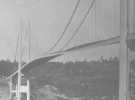
|
The Twisting Motion
The bridge had galloped, but not twisted, prior to November 7. |
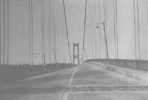
|
At Maximum Twist
One sidewalk was 28 feet higher than the other. |
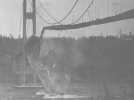
|
The 600 ft Break
A 600 foot section fell into Puget Sound. |
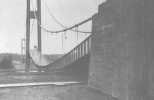
|
The East Span, at rest
After the main span fell, the side spans sagged 45 feet. |
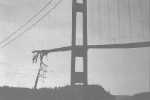
|
It's All Over
This picture was taken shortly after the failure. |
| A Technical Discussion
Was it resonance . . . or was it self excitation? |
|
| Other Internet Resources
History Information Movie Engineer Review |
|
| The K-B Bridge was a 790 ft span concrete box girder bridge, built using the cantilever method in the late 1970s. It collapsed suddenly one evening in September 1996, after it had stood for almost 20 years. These pictures were scanned from postcards available at the Palau international airport. |
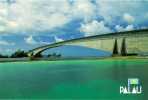 |
Before |
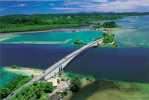 |
Before |
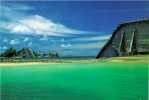 |
After |
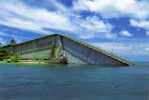 |
After |
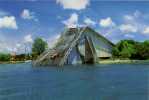 |
After |
| At approximately 7:15 p.m.on the stormy night of 28 December 1879, the central navigation spans of the Tay bridge collapsed into the Firth of Tay at Dundee, taking with them a train, 6 carriages and 75 souls to their fate. At the time, a gale estimated at force 10 to 11 was blowing down the Tay estuary at right angles to the bridge. The collapse of the bridge, only opened 19 months and passed safe by the Board of Trade, sent shock waves through the Victorian engineering profession and general public. |